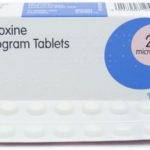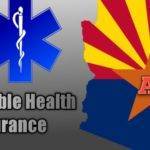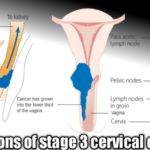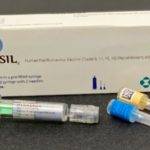
Table of Contents
Most people get insured through their employers so they don’t bother with the marketplace or governmental health insurance provisions. If for any reason you are uninsured and in the process of getting on a plan for the first time, or you want to switch from one that’s not working for you, then this article is for you.
What is considered to be the right health insurance for anyone differs widely among individuals as our needs, financial status, lifestyle, health, and circumstances differ. This write-up highlights what you should know on how to get health insurance.
The importance of getting insured.
Though the right insurance plan varies among individuals and families the reasons for getting insured or switching insurance plans are common across the board. These are:
1. To safeguard against unexpected diseases or illnesses. Illnesses often come when one least expects and could leave people physically handicapped and unable to work. Some could have such an enormous financial impact that renders families broke.
Health insurance sees to it that you don’t bear the full financial impact but rather a small fraction of the total costs.
2. Prevention or cure of expected medical conditions. You may be naturally predisposed to certain diseases with familial tendencies like diabetes mellitus, or you may be at a high risk of diseases like breast cancer.
Health insurance ensures you can bear the cost of regular screening for these medical conditions including Cervical cancer. This could mean an early detection if the disease shows up which may be a reason for your survival.
3. Safety from unplanned and costly medical expenses. A good deal of people are just managing to get by in life and are just an accident or disease away from poverty. Going for an insurance cover saves you from the risk of ugly financial distress.
4. Protection from the rising cost of healthcare. Discoveries and breakthroughs in treating or preventing diseases often come at a cost. Some people miss out on these treatments due to not being able to afford them. Being insured could enable you to access better medical care.
5. Ensuring better health coverage for your family. Your current plan from an employer may not have provided adequate health coverage for you and the members of your family. This could serve as a good reason for seeking better insurance coverage.
Keep in touch: Sign up for our newsletter:
Types of Health insurance.
The type of insurance plan available to you may depend on your area of residence among a few other factors. Nonetheless, below are common health insurance plans you may find in the marketplace as approved by the government.
PPO(Preferred Provider Organization).
With this plan, you pay less only when you see doctors within their network. You don’t need a referral to see specialists and could also go outside the network but at an additional cost to you. However, your options for providers to choose from are large.
Though you could go out of the network if that provider charges more than others in that area the balance is on you. So when going out of network it may be wise for you to know the charges for the services you seek in your area and choose a facility that won’t leave you paying a huge difference.
HMO(Health Maintenance Organization).
This doesn’t cover out-of-network healthcare except in an emergency. You have quite limited options of providers to choose from and you’ll need a referral to see a specialist. Out-of-pocket costs are reasonably low but to be qualified for coverage you may have to be a resident within its domain.
Though your choice of providers is most limited under HMO it also involves the least amount of paperwork in comparison to other plans.
EPO(Exclusive Provider Organization).
Except in an emergency, you can only see doctors and specialists within its network of coverage. The out-of-pocket costs are reasonably low and you don’t need a referral to see a specialist but will have limited options of providers to choose from.
It has little to no paperwork involved but you are entirely on your own when you go out-of-network. In such circumstances, paying your bills in full may be the only paperwork if at all.
POS(Point Of Service plan).
Though you’ll have more provider options, you’ll only pay less when you see doctors and specialists or have procedures done within its network. You’ll need a referral from your doctor to see a specialist.
You first get to pay all the bills for an out-of-network provider and then file a claim to your POS provider.
Below is a table of comparison of health insurance plans based on a given set of criteria you may be interested in.
| Comparison criteria | PPO | HMO | POS | EPO |
|---|---|---|---|---|
| Does it require a Referral? | No | Yes | Yes | No |
| Is coverage only available on the network? | No | Yes except for emergencies. | No | Yes except for emergencies. |
| Out-of-pocket costs. | High | Low | Variable | Low |
| Provider options. | Large | Small | Large | Small |
How to get health insurance that suits you.
Know your marketplace.
Your employer may be your best bet for affordable health coverage. They account for the majority of insured people and often present the cheapest health insurance coverage for employees as they could cover nearly 70 to 90% of insurance premiums according to healthcare.gov.
If you are retired and above the age of 65, medicare is a governmental health insurance program specifically designed to cater to you irrespective of your finances. As of 2018, over 94% of adults in the US were covered by a public medicare plan according to the United States Census Bureau.1
If, however, you are below 65 years, not covered by an employer, and with income that’s 133% below the federal poverty level (FPL) then Medicaid should be suitable.
Medicaid covers nearly 1 out of every 45 Americans. Where you live is also an eligibility criterion for it.
It’s possible you don’t meet the eligibility criteria for Medicare or Medicaid. Under these circumstances, the Affordable Care Act (ACA) makes the provision for you to shop for insurance coverage at Healthcare.gov.
Evaluate your unique health needs.
Choosing the wrong insurance plan can be costly. To reduce the possibility of mistakes you need to evaluate your health needs and those of your dependents.
It could be any of you is on certain prescription drugs, routine medical screenings, treatment, and in need of certain specialists, all of which need insurance coverage. These could be used as criteria in narrowing down your options to specific insurance plans.
Evaluate your financial capacity.
Having health insurance coverage doesn’t translate to absolutely free health services. You’ll still get to pay insurance premiums and a portion of your healthcare bills by way of things like deductibles and co-payments. These are included in what are called out-of-pocket costs.
You need to ensure you can afford the premium for the health plan you are considering. Also, think of the cost of services that are not covered by the plan you may have to pay by yourself with no hope of reimbursement.
Seek professional advice.
Professionals are experts who understand the nitty-gritty in a particular field and are in a position to guide you in making the best choices.
You may call them insurance navigators or assisters. Government-provided bias-free and cost-free professional help may be obtained from the Healthcare.gov page.
Compare plans and be careful with overly enticing offers.
Though there are 4 main health insurance plans as highlighted above the actual list of available options can be overwhelming.
Some may want to hide some aspects of their policy or make too-good-to-be-true offers.
This is where impartial professional help from localhelp.healthcare.gov could save you from falling prey. The rule of thumb states that when something is too good to be true, it probably is.
How to enroll.
Requirements:
You may need to provide some or all of the following information.
- Social security number.
- Date of birth.
- Employer and income information of all household members.
- The policy number of any existing health insurance.
- Tax filing status.
- Payment information like a credit card.
- Information on any existing job-based insurance on your household.

Means of application:
1. Fill out a paper application to be sent by mail.
2. Go through an “assister” or insurance broker.
3. Phone enrollment by contacting the marketplace call center.
You can apply online via either the Healthcare.gov website or that of their certified partner in the following steps:
- Create an account.
- Enter the requested information about you and your dependents.
- Go through all the health insurance plans for which you are eligible, compare your options, and enroll.
The enrollment period is usually at the end of every year and it could take up to 3 weeks to process your application. However, your health insurance coverage could begin on the 1st day of the following month if your application was received before the 15th of the previous month.
You may want to see a debilitating health condition that will certainly need insurance coverage.
Reference.
- Berchick, Edward R., Jessica C. Barnett, and Rachel D. Upton. Current Population Reports, P60-267(RV), Health Insurance Coverage in the United States: 2018, U.S. Government Printing Office, Washington, DC, 2019. ↩︎































































































































































Very interesting piece, i appreciate the work.
Hmm it looks like your website ate my first comment (it was super long) so I guess I’ll just sum it up what I wrote and say, I’m thoroughly enjoying your blog.